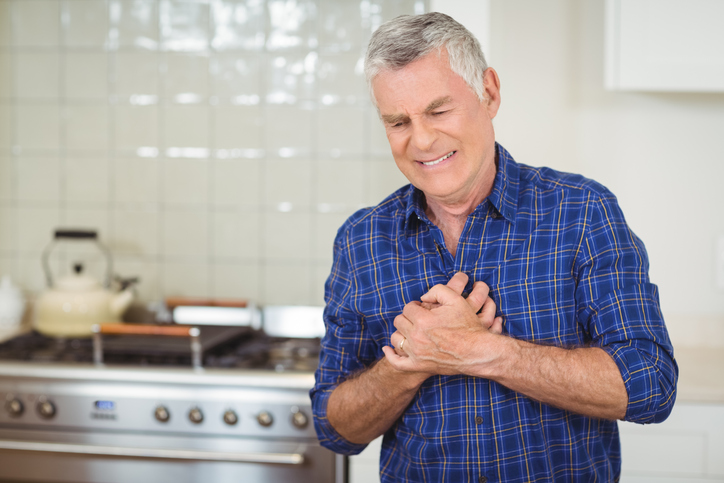
Now that the stores are overflowing with heart-shaped everything in celebration of Valentine’s Day, it’s the perfect reminder for each one of us to take care of our hearts, and in particular, to be able to identify the signals of a heart attack and to know clearly what to do if we suspect a senior loved one is experiencing one. Even if you have previously educated yourself on these red flags, it’s definitely a good idea to take a moment for a quick refresher.
At Live Free Home Health Care, our New Hampshire home care specialists are always here to share helpful resources such as these to make sure seniors stay safe and well:
Warning Signs of a Heart Attack
Seek out immediate medical care if your senior loved one complains of any of these symptoms:
- Chest discomfort or pain. This can come on all of a sudden and intensely, or involve a slower, more gradual progression. Some heart attack patients express the feeling as a tightening or squeezing that usually lasts a few minutes or more, or which recedes and then returns.
- Vomiting/nausea. Nausea can also be combined with faintness, dizziness, and/or breaking out in a cold sweat.
- Upper body pain. Pain may radiate down the back, in either or both arms, in the stomach, and sometimes even in the neck and jaw.
It’s important to note as well that women and men sometimes experience different heart attack signs and symptoms. Men are more inclined to suffer from only chest pain and discomfort, whereas women have a tendency to suffer from the other common symptoms mentioned above.
As Nieca Goldberg, M.D., medical director for the Joan H. Tisch Center for Women’s Health at NYU’s Langone Medical Center shares, “Although men and women can experience chest pressure that feels like an elephant sitting across the chest, women can experience a heart attack without chest pressure. Instead, they may experience shortness of breath, pressure or pain in the lower chest or upper abdomen, dizziness, lightheadedness or fainting, upper back pressure or extreme fatigue.”
If You Suspect Your Loved One Is Having a Heart Attack
Time is of the essence in receiving correct treatment during and after a heart attack. It is always recommended to call 911 to provide faster transport to the hospital and for emergency medical staff to provide treatment along the way.
Live Free Home Health Care can help in a wide range of ways with keeping older individuals healthy and well. By partnering with our trained New Hampshire home care experts, a caregiver is available to keep an eye out for warning signs of a heart attack or other health concern and to seek help immediately. Our in-home care services also include preparation of nourishing meals, assistance with personal care and ambulation to help reduce the risk of falls, caring companionship, and many other tasks to improve health and wellbeing. Contact us at 603-217-0149 to take the first step in helping your senior loved one live a better quality of life, or visit our Frequently Asked Questions page or Resources page to learn more.
